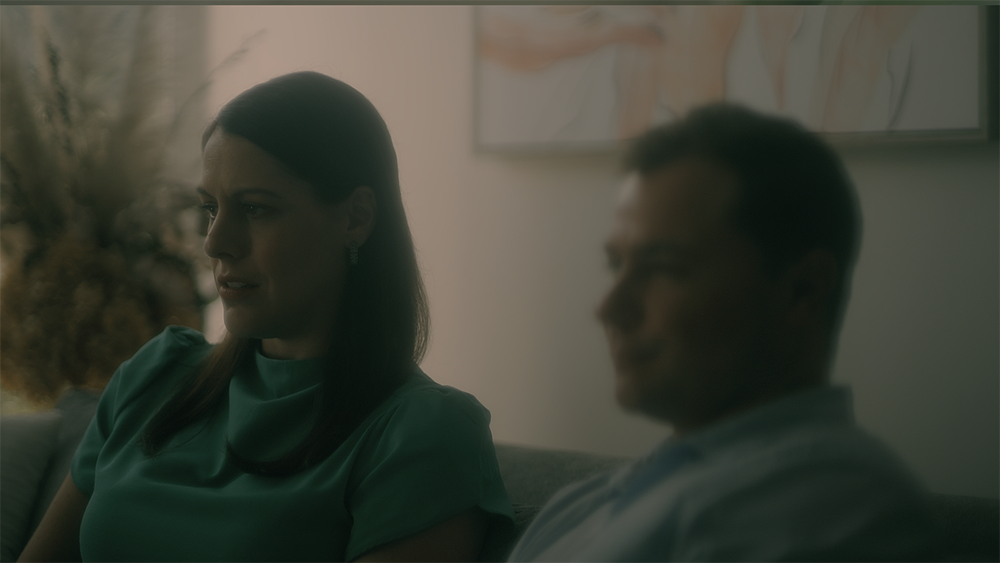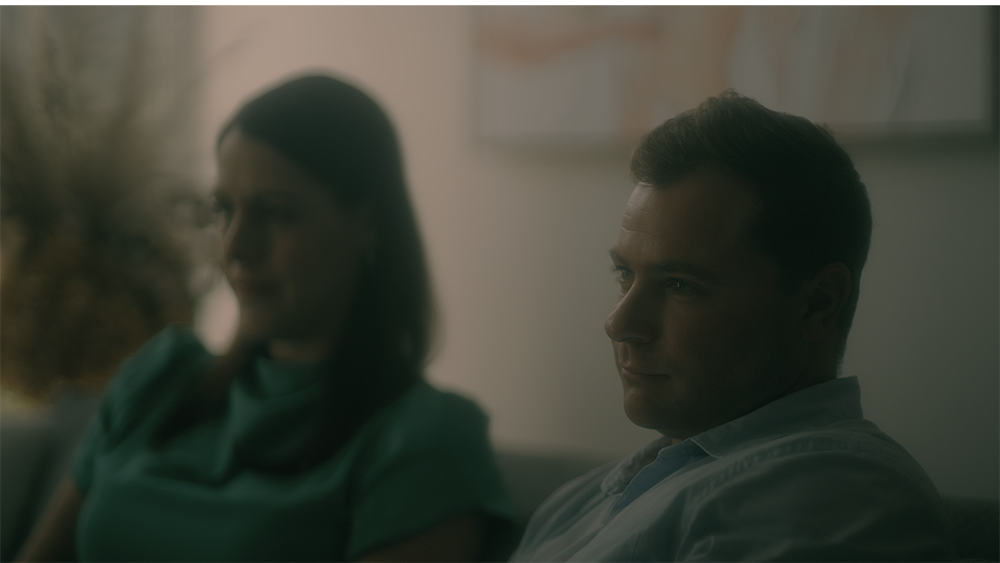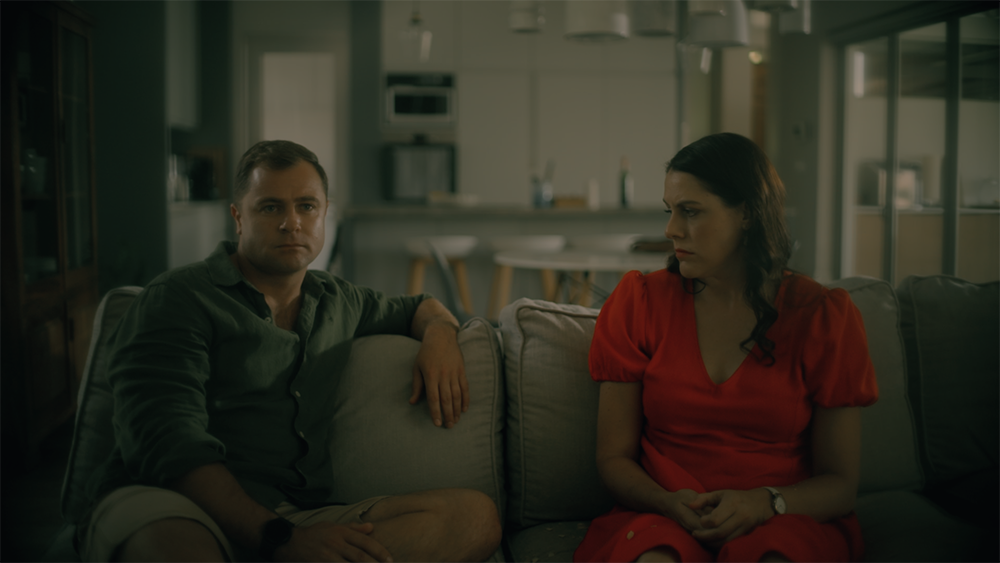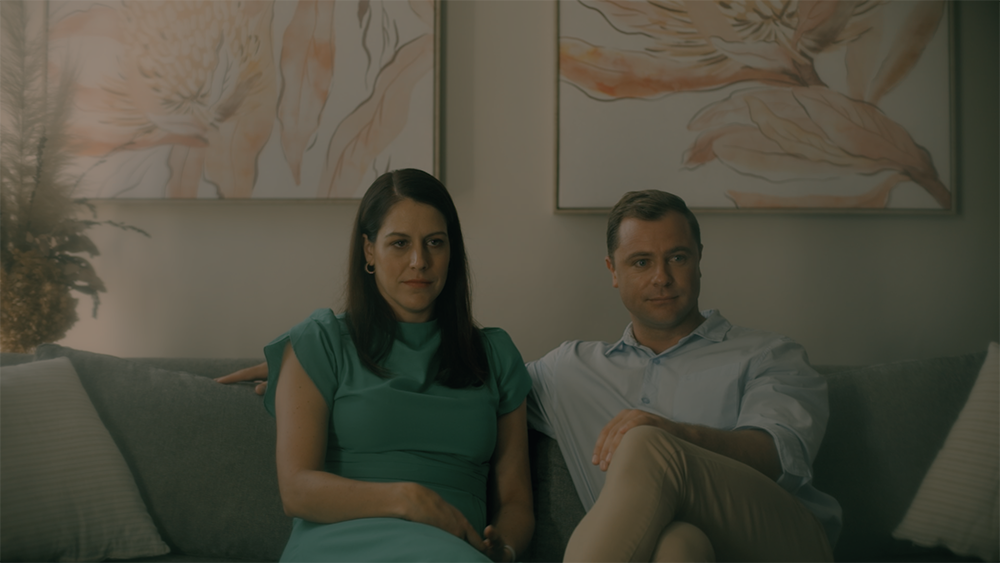



Short film by an emerging filmmaker: Sewe
Why do people stay in relationships where their dignity is eroded and the love has long since walked out the door? That’s the question actress Karlé Briedenhann grapples with in the short film Sewe, which also marks her debut as a producer and screenwriter. She shares more about Sewe:
Karlé, you wrote and produced Sewe and also play the lead role of Michelle. How did that come about?
Acting is my first love, but I decided to develop a few more skills and create work for myself. That’s why I wrote the stage play Sewe for the 2024 Suidoosterfees. After the festival, the concept was accepted for Silwerskermfees, but the final screenplay is completely different from the original script.
I tackled the writing process bit by bit. After going through the submission process and hearing our script had been selected, none of the producers we approached were available. And that actually turned out to be a blessing, because now I’m fully actress, producer and writer. One script opened so many doors.
I also had to audition for the role of Michelle, just like everyone else.
How did you manage to stay focused while juggling the different aspects of the production?
In one of our first conversations, Wim Steyn from IdeaCandy told me to put on my writer’s hat first, then take it off to be just an actress. You can easily come across as a micro-manager, but honestly, I just really wanted to act. And yet, it was a gift – the writer in me helped the producer. Once the final version of the script was done, I handed it over with peace in my heart to our director, Ingrid Paulus, and told her, “Now it’s yours.”
Sewe explores domestic abuse. Why did you choose this theme in particular?
The idea stayed with me for a long time, and when it wouldn’t let go, I decided to do some research and write the script. The first seed of the story was planted when I heard the statistic that it takes an average of seven attempts before someone leaves an abusive relationship.
In my circle, people would often speculate about why someone doesn’t “just leave” her husband, but keeps fighting for the marriage. It’s easy to judge, but most situations are very complex. I wanted to try to understand the “why”, and as an actress, the emotional journey of someone like that really triggered something in me.
Was it challenging material to work with as a writer and actress – and also as a woman?
One of the biggest challenges was that I don’t share Michelle’s frame of reference at all, because I’m happily married. I knew the story had to be told with respect and without sensationalism, and I had to find the balance between sensitivity and keeping the audience engaged.
A clinical psychologist guided me to trustworthy sources so I could better understand the power dynamics between the characters. The Michelle who entered the relationship is not the same Michelle who must eventually make a life-altering decision.
Ingrid Paulus is well known for her role in 7de Laan and now as a director on Suidooster. Was it a good experience working with her?
I trust her completely, especially because she’s an actress first and foremost. Zak Hendrikz, my co-producer, and I were looking for someone who would really understand the work. Ingrid also agreed with me that we didn’t want to create a public service announcement against domestic abuse – we wanted to tell a story that was real and honourable, to shine a light on emotional and verbal abuse, gaslighting and the manipulation that happens in relationships.
The cinematography, lighting and soundtrack all contribute to the storytelling, don’t they?
Johannes Pieter Nel, our cinematographer and chief lighting technician, as well as Ingrid and everyone involved in the project, collaborated on every level to tell the story in the best possible way. Wesley West’s soundscape is not lyrical, but rely heavily on sound to evoke emotion – and it works beautifully.
My sister, Madri Muller, is a violinist and I roped her in to do the violin parts. It was a challenge for her to play those scratchy, “ugly” sounds. But once it all came together, it was magic.
Why should people watch this film?
Because, unfortunately, the theme is still incredibly relevant – domestic abuse happens every day. As an actress, you’re taught that you can’t portray your character honestly if you judge her. That’s why I wrote this story especially for people outside of such situations, to help them gain insight and empathy for women like Michelle.
Women in these relationships are often trapped, and if you judge them, you can’t reach out a helping hand. I wanted to shed light on what goes on behind closed doors – and that’s why we chose to set the story in a wealthy home, with neat, white furniture and Woolworths food in the fridge.
